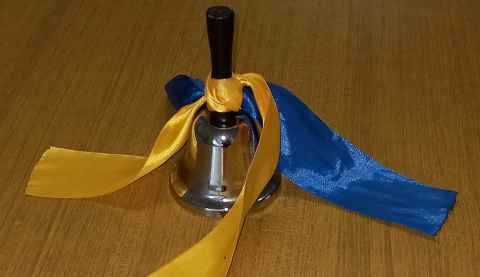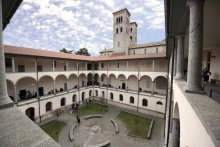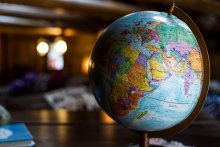
Teaching Ukrainian in Hereditary Schools in Lombardy is the seminar organized by the Center for Minority Research (Cerm) of the University of Insubria to celebrate International Mother Language Day 2023. The event will take place on February 21 in Room VS7B, at 11 Valleggio Street in Como.
The seminar will feature the participation of directors and teachers of Ukrainian hereditary schools present in Milan, Seregno, Bergamo and Brescia, including Veronica Rusnak of the Ukrainian Kvity Ucrainy School in Bergamo, Halyna Barlyak and Mariia Lagish of the Zernyatko Center for the Study of the Mother Tongue in Brescia, Marika Zabiyaka of the Ukrainian Solomia Krushelnytska School in Milan, and Oksana Kolotynska of the Ukrainian Sunflower School in memory of Gregorij Tkachuk in Seregno.
"A central role in the education of second and third generations of migrant communities is played by heritage schools," explains Professor Paola Bocale, professor of Slavistics and deputy director of the Minority Research Center. "The term, which literally translates the English heritage schools, often refers not to real schools, but to educational activities complementary to public education, which is still attended by students during school hours. There are currently about seventy Ukrainian heritage educational institutions in Italy, 60% of which are located in northern Italy, mainly in the regions of Lombardy, Emilia Romagna and Veneto. All pupils study in parallel during the week in Italian compulsory elementary or middle schools, while on Saturday afternoons they attend the Ukrainian school for four or five hours, where they learn the language and elements of history, literature and culture. The last hour is left for expressive and creative activities such as dance, drama, music, drawing, painting and handicraft classes. School principals and parents motivate the existence of Ukrainian hereditary schools with the need to keep the knowledge of the hereditary language alive among the second and third generations, both to maintain and strengthen the cultural identity of origin and as a valuable and indispensable resource, a human capital to be valued and invested in the future."
- The seminar is free and open to the public.
- Booking through the Event Brite platform.





